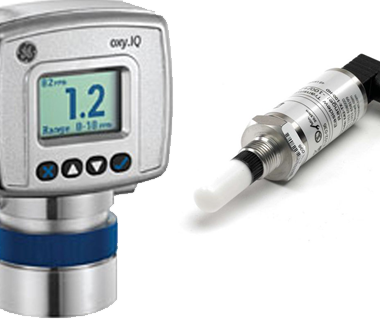Environment, Health and Safety Manual – Chapter 01.04: EHS Management System – Committees
Title
Environment, Health and Safety Manual – Chapter 01.04: EHS Management System – Committees
Requirement
State regulations require each State agency to create environment, health and safety committees to perform workplace inspections, review injury and illness records, make advisory recommendations to the administration, and perform other functions determined by the State Personnel Commission to be necessary for the effective implementation of the State Workplace Requirement Program. This section provides an overview of how UNC-Chapel Hill has implemented this requirement.
University Safety and Security Committee
The University Safety and Security Committee (USSC) is composed of: Vice Chancellor for Finance & Operations (Chair); Vice Chancellor & General Counsel; Vice Chancellor Research & Graduate Studies; Vice Chancellor Student Affairs; Associate Vice Chancellor Campus Services; Vice Chancellor Human Resources; Associate Vice Chancellor Facilities Planning and Construction; Chief of UNC Police, Director of Environment, Health and Safety; and the Chair from each subcommittee.
Committee Responsibilities
Basic committee operations are as follows:
- Review all safety and health policies and procedures established by the agency pertaining to hazards management, occupational health and clinical safety, laboratory and chemical safety.
- Review incidents involving work-related fatalities, injuries, and illnesses or near misses.
- Review employee complaints regarding safety and health hazards related to hazards management, occupational health and clinical safety, laboratory and chemical safety.
- Analyze the agency’s work injury and illness statistical records.
- Conduct inspections of work sites at least annually and in response to complaints regarding safety or health hazards.
- Conduct interviews with employees in conjunction with inspections of the workplace.
- Review agency’s training records to ensure compliance with regulatory training requirements.
- Conduct meetings at least once every three months. Maintain written minutes of such meeting and send copy to each committee member. Copy of minutes shall be posted in the appropriate workplace.
- Designate Employee Safety and Health Representative(s) to accompany representatives from regulatory agencies (i.e. NCOSHA, NC Department of Insurance, NC Division of Environmental Management) during safety and health inspections of the workplace.
- Make written recommendations on behalf of the committee to the Chancellor.
Workplace Safety Committees
UNC-Chapel Hill has a variety of occupations and workplaces, which support the University’s mission of education, research and public service. Each workplace safety committee is organized around the particular environment, health and safety issues facing the University’s workforce today.
Hazards Management Committee
This committee focuses on the emerging issues of environment, health and safety for employees working in the office, support services, and industrial, maintenance/construction work environments. The support services work environment consists of activities that are conducted outside of the office environment, usually involve public contact, may involve hazardous materials (examples: Department of Public Safety, Department of Environment, Health and Safety, Material Support, and Housekeeping). The industrial, maintenance and construction work environment consists of those work units whose primary activities are performed at various locations around campus and at fixed location, which uses industrial-type machines and equipment (examples: Facilities Services Electrical, Plumbing, and HVAC Shops, Grounds, Athletics Department Finley Golf Course operations; and Electronics Office Service Center).
Occupational Health and Clinical Safety Committee
This committee focuses on Occupational Health services for University personnel and the emerging issues of environment, health and safety for employees working in the clinic environment. The Clinic work environment is primarily characterized by activities involving patient contact and exposure to blood or other potentially infectious materials. The Clinic Environment frequently has additional environment, health and safety requirements imposed by accreditation organizations, e.g., Joint Commission.
Laboratory and Chemical Safety Committee
This committee focuses on the receipt, usage, storage, and disposal of chemicals along with the emerging issues of environment, health and safety in the laboratory environment. The Laboratory work environment consists of those work units that are subject to the OSHA Laboratory Standard.
Committee Organization
Each committee is composed of twelve employees, at least six of who are non-supervisory employees. The Director of the Department of Environment, Health and Safety, or designee, serves as an ex-officio member with voting rights on each committee.
Appointments
Members of the safety committees are appointed by the Chancellor. Terms of the initial appointees are staggered to provide for one-third of the committee members being replaced each year. Terms are for three years and members will normally not serve consecutive terms although members initially appointed to less than a three-year term may be reappointed to a full term.
Committee Service
Time spent at committee meetings and committee activities is considered to be normal work time and will not result in any loss of pay or benefits. It is anticipated that work schedules can be adjusted to avoid committee service resulting in over-time pay. Committee membership will be limited to full-time, permanent UNC-Chapel Hill employees.
Radiation Safety Committee
The Radiation Safety Committee is responsible for establishing policies governing the procurement, use, storage, and disposal of radioactive materials and radiation-producing devices. The Committee includes individuals experienced in the use or application of radioactive materials and radiation devices and provides a peer review of these uses among researchers at the University. The Committee meets at least quarterly to review reports on the receipt and disposal of radioactive materials/radiation-producing devices, and to act on applications for authorization to use these sources. The Committee, along with its chairman, is appointed by the Chancellor. It makes an annual report of activities to the Chancellor.
Institutional Biosafety Committee
The Institutional Biosafety Committee (IBC) is appointed by the Chancellor and is responsible for reviewing recombinant DNA research projects for compliance with the NIH Guidelines and approving those projects that it finds in conformity with the Guidelines. The review includes an assessment of the containment levels, facilities, procedures, practices, training, and expertise of recombinant DNA personnel. The IBC reports to the Chancellor and to the NIH any significant problems with or violations of the Guidelines and any significant research-related accidents or illnesses. The committee meets monthly to review recombinant DNA research being conducted at the institution to ensure that the requirements of the Guidelines are being fulfilled.
Contact Information
Policy Contact
Environment, Health and Safety
1120 Estes Drive
Campus Box #1650
Chapel Hill, NC 27599-1650
Phone: 919-962-5507
Back to Chapter 01.03 – EHS Program
Proceed to Chapter 01.05 – Work Units





